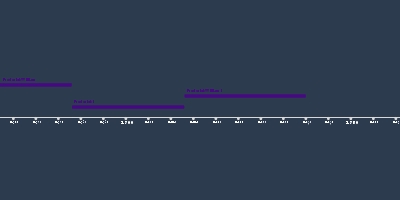Haitian Revolution (1 jan 1791 ano – 1 jan 1804 ano)
Descrição:
The Haitian Revolution on the former French colony of Saint-Domingue was the first successful large-scale slave revolt. Haiti was the first nation to gain its independence through a slave revolt, and it was the first Latin American nation to gain independence. The revolution cost France a colony that was important for sugar production and threatened slaveholding societies in the Caribbean and the American colonies.The French Colony of Saint-Domingue was subject to a system of slave-based agriculture. News of the French Revolution sparked widespread rebellion, and despite invasion, now-called Haiti became the first nation to claim its independence through slave revolt in 1804.
The highly outnumbered white planters dominated the colony. The 1685 Code Noir intended for slaves to have minimal standards, but this was often ignored by slavers. Thus, many died often. Some joined a group of fugitive slaves known as maroons. In the 1760s, colonial administrators began rescinding the rights of free people of color who originally had similar status. Due to political and intellectual turmoil and inspiration from the French Revolution, resentment grew. Fearing insurrection and independence, the National Assembly refused to extend French constitutional safeguards to the colonies.
Vincent Oge, a free man of color, raised an army after his demands were turned down, but the army was eventually defeated and he was tortured and executed. The National Assembly granted political rights to free people of color born to two free parents who possessed sufficient property, but the governor refused to enact it and violence erupted.
The more decisive stage of the revolution followed when slaves planned a mass insurrection, drawing on experience derived in Africa. Revolts began and within a few days it was widespread. Ina hope to quell the rebellion, the Assembly extended full citizenship rights to free people of color, including the right to vote.
Toussaint L’Ouverture, a free slave who had joined the revolt, was named a Spanish officer. Santo Domingo, the Spanish colony on the rest of the island, had supported rebel slaves. British troops had captured French territory on the island. The new National Convention promised freedom to slaved who fought for France, and by October 1793 it was abolished in the colony (and february 1794 in all it’s holdings).
L’Ouverture switched sides and supported France. The French regained control of the colony, and L’Ouverture was named commander of the western province of Saint-Domingue.
Tensions mounted between freed slaves like L’Ouverture and free people of color like another general Andre Rigaud. Civil war broke out when L’Ouverture’s forces, led by his lieutenant Jean Jacques Dessalines, invaded the south. L’Ouverture’s victory gave control of the colony.
Napoleon had his own plans for re-establishing slavery, and ordered his brother Leclerc to crush the regime. L’Ouverture and his family were deported, and he died in 1803. Dessalines and his forces led victory over the French and declared the independence of Saint-Domingue, and the nation of Haiti was born. Their constitution was ratified in 1805. This was the first time a nation gained independence by slave revolts, and it was the first Latin American colony to gain independence, which threatened and worried slaveholding societies.
Adicionado na linha do tempo:
Data:
1 jan 1791 ano
1 jan 1804 ano
~ 13 years
